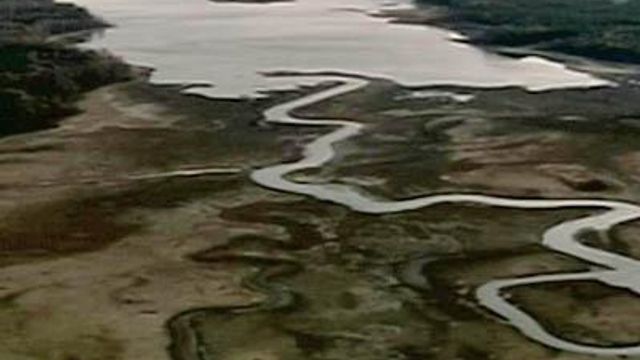Durham Leaders Tap New Ideas for Providing Water
With about seven weeks of drinking water left in Durham's two primary reservoirs, City Council members met Thursday to discuss options to keep water flowing to local residents.
Posted — UpdatedLake Michie is down 17 feet from normal levels, while the Little River Reservoir is 27 feet below full.
"More and more people are becoming alarmed," Councilman Howard Clement said.
The meeting came the same day as a report that shows North Carolina's statewide drought continues to deepen.
Seventy-one of North Carolina's 100 counties are experiencing exceptional drought conditions, the worst of five categories monitored by the state Drought Management Advisory Council. A week ago, 62 counties were in the exceptional drought category.
Fourteen counties are in now in extreme drought, and 15 counties – they are primarily in the eastern end of the state – are experiencing severe conditions.
WRAL Chief Meteorologist Greg Fishel said no significant rainfall is in the forecast for the next week.
An abandoned quarry off Denfield Street is Durham's first strategy to forestall drastic measures like water rationing. The Teer Quarry holds an estimated 520 million gallons, which would last the city about 25 days, officials said.
"We're renting pumps to get the water out of there," said Don Greeley, deputy director of Durham's water management department.
City crews will place an emergency tap into the quarry in two weeks. A pipeline that carries water from Lake Michie to Durham's water treatment plant runs near the quarry, and officials said they would to pump water from the quarry into that line.
Renting the needed equipment to tap the quarry will cost the city about $25,000 a month.
In January, the city plans to double its daily draw from Jordan Lake, to about 3.6 million gallons a day.
As a last resort, city officials are looking at digging deep into Lake Michie and the Little River Reservoir.
"We know that's going to end up being 'Grade B' water, so to speak," Councilman Eugene Brown said.
The extra sources would combine to add more than 80 days to Durham's water supply, and City Council members said the cost will be worth it to keep providing water to residents and businesses.
One of Durham's long-term solutions would be a $100 million project to increase the capacity of Lake Michie.
City Manager Patrick Baker said the council would explore options at a January retreat to help pay for such long-term projects. Those options include tiered water rates based on usage, a water surcharge and increasing the base water charge from $1.95 per 1,000 gallons used indoors.
• Credits
Copyright 2024 by Capitol Broadcasting Company. All rights reserved. This material may not be published, broadcast, rewritten or redistributed.





